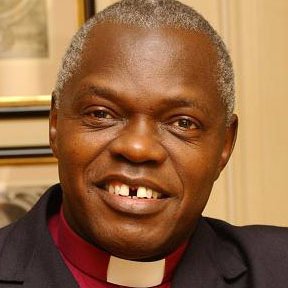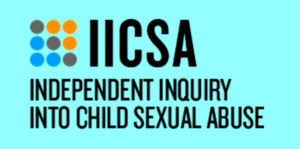 Some days have now passed since I received and posted up the guest post from Janet Fife. This took the form of a letter to our two Archbishops. Janet and I had had an email conversation about the Pastoral Letter and we agreed that a survivor’s reaction to it was important. She told me that she needed two or three days to write a blog post. In the event her response arrived extremely quickly on Saturday evening. My first reaction on reading it was to be cautious. But very soon I began to see that in its direct language and in the way that it gave voice to a raw expression of pain, the letter was saying something to the Church that needed to be heard. In the two days since being posted on Sunday morning the post has been viewed 8000 times and the reactions so far have all been positive. Apart from reflecting Janet’s experiences of actual abuse in the church, it is a document that describes well the way that the Church, having accepted women’s ordination, has not given some of these women an easy ride over the past 25 years.
Some days have now passed since I received and posted up the guest post from Janet Fife. This took the form of a letter to our two Archbishops. Janet and I had had an email conversation about the Pastoral Letter and we agreed that a survivor’s reaction to it was important. She told me that she needed two or three days to write a blog post. In the event her response arrived extremely quickly on Saturday evening. My first reaction on reading it was to be cautious. But very soon I began to see that in its direct language and in the way that it gave voice to a raw expression of pain, the letter was saying something to the Church that needed to be heard. In the two days since being posted on Sunday morning the post has been viewed 8000 times and the reactions so far have all been positive. Apart from reflecting Janet’s experiences of actual abuse in the church, it is a document that describes well the way that the Church, having accepted women’s ordination, has not given some of these women an easy ride over the past 25 years.
I do not intend to add my own commentary on the Archbishops’ letter. But there is one point made by Janet that needs to be repeated. She asks that whenever bishops or senior churchmen produce a piece about the issue of sexual abuse that they should ask a survivor for their reaction. I want to repeat this request. The word ‘safeguarding’ which has come so frequently into our vocabulary over past weeks is a word that largely describes the shutting of the proverbial stable door. It is what you do when you know that a horse has bolted. The ‘S’ word has a terrible air of management-speak about it. People have been severely harmed by the Church but we still talk as though ‘good practice’ for the future is the most important issue. We will learn lessons; we will make sure that we will provide the best possible training to monitor our work in the future. We ‘will listen and act in accordance with safeguarding legislation and good practice’. This last sentence is a direct quote from the Archbishops.
As I write these words the image that comes to mind is the aftermath of a terrible battle. The fighting has stopped but there are men lying with a variety of wounds around the battlefield. Some others are walking, merely shocked and disorientated. Others are too damaged to be able to move. A group of helpers comes on to the field. Their task is ostensibly to help everyone. But they lack even the basic medical skills required to minister to the badly wounded. It turns out that they are trained only in one particular sphere. They have been sent to rally and encourage the defeated troops. These skills will unfortunately only work with those who have not been wounded. They have been trained by the Ministry of Morale and they have taken all the latest courses in encouraging an army to fight again after an engagement.
Our band of helpers is of course moved by the sight of so many wounded men and they do what they can. But they have not brought what the wounded actually need – bandages, splints, pain killers etc. Some of them need to be taken to a hospital for lengthy treatment. These wounded soldiers have no interest in the morale boosting rhetoric which is what the helpers are trained in. Their focus of their attention has been reduced to a single aim – that of healing and recovery.
The Archbishops’ letter was a bit like a team of helpers who arrive at the battlefield with the wrong training and the wrong equipment. A survivor who is wounded in any area of life knows what he/she needs. The wounded survivor of sexual abuse needs to be heard; he/she needs counselling by those who understand the religious dimension of the abuse. Their need is also to feel that the organisation they belong to has real insight into how the abuse occurred. They know that when power is given to the wrong people there is enormous scope for things to go wrong in a church. Further, if the people who rise quickly to the top are possessed of any grandiose tendencies then those at the bottom, especially the battlefield wounded, will not be able to attract their attention. If bishops behave like generals far away from the front-line, the needs of the ordinary soldier will be low in importance.
Janet’s important letter was a plea on behalf of the ordinary wounded members of the church who have, up till now, normally suffered silently as the result of their sexual abuse. Their perspective is frankly different from the perspective of Archbishops and other dignitaries who are concerned for the morale and wellbeing of the wider army. But the wounded who still lie on the battlefield deserve to have a voice and they cannot be blamed if their voices cry out for justice and healing. They may have arrived at the point where they are only aware of their pain and their feelings of being abandoned by the rest of the church. Can we expect them to have the same concern for the army when they are nursing their wounds and wondering if they are even going to survive?
The care of survivors will always involve far more than words. Words may indeed make their plight far worse. I am reminded of that passage from Epistle of James where the hungry person is offered only words. The epistle author takes a very dim view of the failure to offer food and practical help. The Church needs to get its house in order in terms of support and relevant solutions. It needs to be prepared to spend considerable sums of money to provide the sorts of help that survivors say they need. As a first step there could be a meeting when senior bishops and the National Safeguarding Team meet survivors. The agenda should be agreed beforehand and should broadly follow what the survivors themselves have determined. As an act of good faith on both sides, an initial meeting need have no lawyers present on either side. I hold a great deal of respect for the abuse lawyers I know, but I feel that, with the right degree of humility on both sides, human communication would be better by their absence in the first instance. The generals need to visit the battlefield in person to listen to their wounded soldiers. When some broad understandings have been established then is the time for detailed negotiations and agreement which would involve professional representatives on both sides.
Janet’s letter to the Archbishops seems to have begun a process of listening and communication in this area which, we hope, will never be reversed. As an aside it has shown the power of digital communication. For good and ill, Facebook, Twitter and the humble blogger will affect the Church in ways that were inconceivable even ten years ago. I, for one, am proud that the existence of Surviving Church allowed Janet to have a voice and thus be heard by large numbers of people across the Church.




